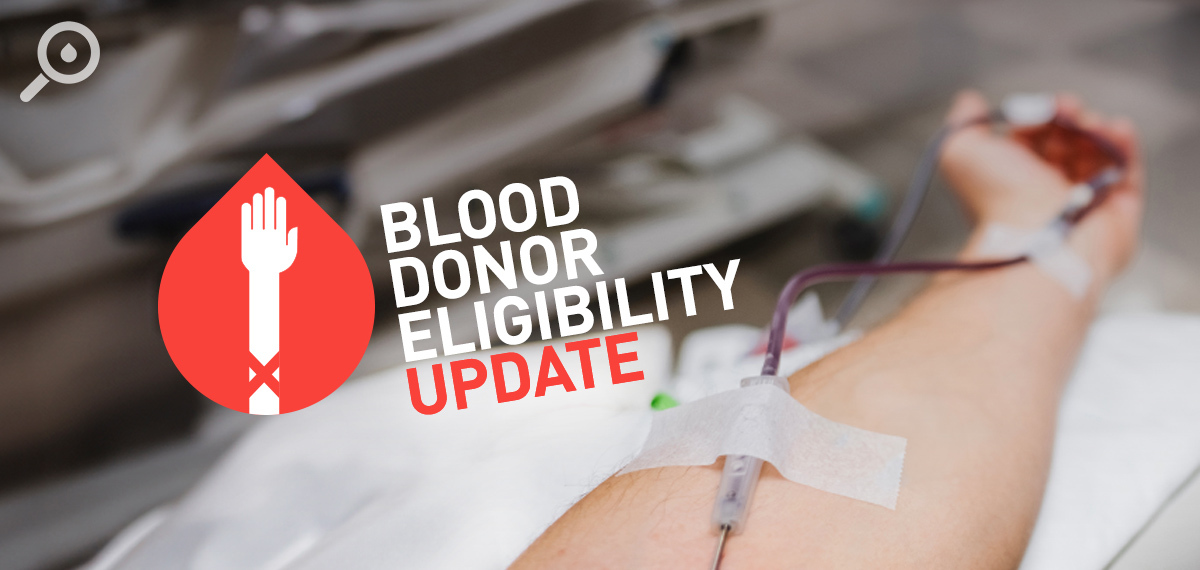
“Yes, I am feeling healthy and well today… no, I’m not on antibiotics right now,” donors read and respond as they select “yes” or “no” in Quickpass on the day of their donation. Many of our donors know that this is the start of the donation process.
Many donors don’t even think twice if a question is different; they simply go through the motions of answering. Sometimes questions might not make sense at first to our donors.
Because some changes are coming to the Donor Health History Questionnaire (DHQ) it seemed fitting to dive into these primary Quickpass questions. These initial fifty-some-odd questions are not actually generated by Bloodworks: they come from the Association for the Advancement of Blood & Biotherapies (AABB), the “not-for-profit Association representing individuals and institutions involved in the fields of transfusion medicine and biotherapies.”
The AABB creates the questionnaire in alignment with regulations and guidance published by the FDA. These questions are designed to both evaluate the safety of the donor and the quality and safety of the blood being provided to transfusion recipients.
One of the most noticeable changes is that the new question set will be gender neutral. This means that all donors, whether they identify as male or female, will receive the same questionnaire; Bloodworks does not currently have another gender option.
Every donor will now be asked if they’ve ever been pregnant and if they’ve ever had a transfusion.
The FDA is also moving away from asking gender-specific HIV risk questions. Donors who identify as male will no longer see “In the past 3 months have you had sexual contact with another male?” on their screen. Instead, it will be replaced with two gender neutral questions addressing if a donor has had new or multiple sexual partners in the past three months.
Preventative HIV medication questions with examples of PrEP / PEP are being updated.
Change, even when positive, can bring many questions. Here are a few of the biggest, and our Blood Collection Specialists, Eligibility, and Donor Care Team are happy to answer any others donors might have.
If the question set is gender neutral, why do I have to confirm my gender in the screening room?
The easiest answer is that Bloodworks still has different physical value acceptations depending on the gender identified by the donor, such as hematocrit values and weight for minors. Bloodworks currently also has a testing algorithm which determines which donors get screened for HLA antibodies (more on this below), and the algorithm is based, in part, on gender.
Why am I being asked about my sexual history with new or multiple partners? And why is there a focus on anal sex?
Although HIV testing has improved, there is still a window period in which the tests may not identify an infection. These risk-based questions are still in the questionnaire using a timeframe of three months to account for this window period.
From AABB’s FAQ on Individual Donor Assessment Screening, “Statistically, anal sex has a significantly higher chance of HIV transmission per sex act… this does not account for individuals’ safe sex practices, but is based on an evidence-based approach to overall risk.”
I take Pre/Post-exposure prophylaxis PrEP/PEP as a preventative. Why is that a cause for deferral?
AABB addresses these concerns, stating that while PrEP/PEP, “…is a highly effective medication regimen used for HIV prevention… low levels of HIV may be missed by current testing methods.”
Current definitions of an “undetectable” HIV+ viral load only applies to sexual transmission of HIV. AABB states, “Even blood donated by those who have an undetectable viral load could potentially put a patient at risk for HIV following a blood transfusion.”
Why am I being asked about pregnancy and transfusions?
Donors, regardless of gender, are still eligible to donate if they are not currently pregnant, have not been pregnant within the last six weeks, and have not had a transfusion within the last three months. Pregnancy includes miscarriages, abortions, and live or still births.
Donors who have been pregnant or been transfused have a higher chance of developing HLA antibodies, protein markers that are part of the body’s immune response. The questions about having ever received a transfusion or been pregnant are both related to the development of HLA antibodies and subsequent risk of transfusion-related acute lung injury (TRALI) reactions in the recipient.
TRALI is currently the single highest risk for a patient during a blood transfusion. There have been studies indicating these HLA antibodies in transfusion-related reactions. Blood centers try to reduce this risk by not making high volume plasma components from donors who have screened positive for having HLA antibodies.
We understand that some donors may find these questions off-putting. But our hope is that, by educating our community, staff, and donors why these questions are asked, we can provide open conversations and learning opportunities, thus further expanding a safe and reliable blood supply in our communities.
Bloodworks is excited to promote a gender-neutral questionnaire and to move away from an outdated HIV risk bias against men who have sex with men. We’re looking forward to welcoming donors who may have previously been barred from donating.
Tell Us What You Think!